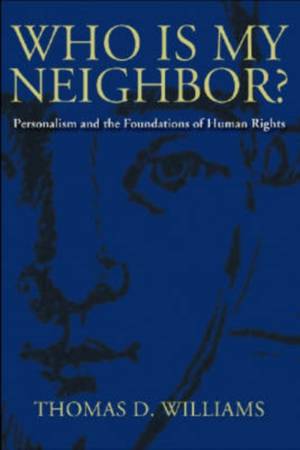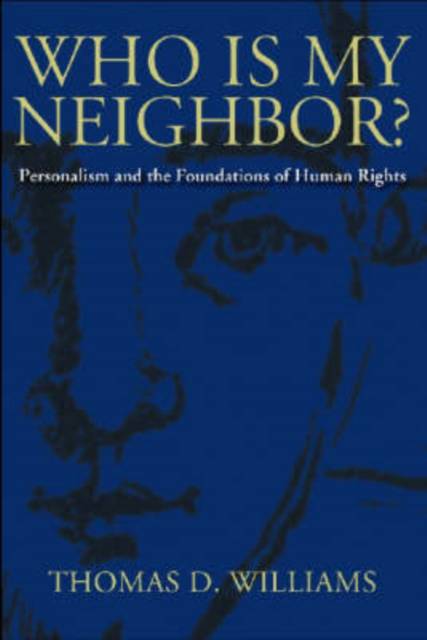
- Afhalen na 1 uur in een winkel met voorraad
- Gratis thuislevering in België vanaf € 30
- Ruim aanbod met 7 miljoen producten
- Afhalen na 1 uur in een winkel met voorraad
- Gratis thuislevering in België vanaf € 30
- Ruim aanbod met 7 miljoen producten
Zoeken
Who Is My Neighbor?
Personalism and the Foundations of Human Rights
Thomas D Williams
Hardcover | Engels
€ 127,95
+ 255 punten
Omschrijving
Over the past half century the language of human rights has gained such dominance in moral, civic, and ecclesiastical discourse that ethical and social questions are increasingly framed in terms of rights. Yet the vast literature dealing with human and civil rights focuses almost exclusively on the juridical and practical ramifications of rights, rather than the philosophical, moral, and foundational aspects. As a result, the proliferation of rights claims and catalogs has not been accompanied by a reasoned case for the existence of human rights or rational criteria for distinguishing true moral entitlement from spurious claims. Who Is My Neighbor? makes an original, compelling case for human rights as moral entitlements grounded in the dignity of the human person. Drawing upon insights of Thomistic Personalism, Thomas D. Williams sets forth in clear, vigorous prose the anthropological, philosophical, and theological bases for asserting that the human person must always be loved as an end and never used as a mere means. answers their arguments by showing how, rightly understood, human rights dovetail with classical ethical theory and traditional formulations of justice and natural law. Williams suggests that rights language not only does no violence to classical ethics but serves to highlight certain fundamental truths about the human person essential to right human relations.
Specificaties
Betrokkenen
- Auteur(s):
- Uitgeverij:
Inhoud
- Aantal bladzijden:
- 342
- Taal:
- Engels
Eigenschappen
- Productcode (EAN):
- 9780813213910
- Verschijningsdatum:
- 3/03/2005
- Uitvoering:
- Hardcover
- Formaat:
- Genaaid
- Afmetingen:
- 167 mm x 230 mm
- Gewicht:
- 734 g

Alleen bij Standaard Boekhandel
+ 255 punten op je klantenkaart van Standaard Boekhandel
Beoordelingen
We publiceren alleen reviews die voldoen aan de voorwaarden voor reviews. Bekijk onze voorwaarden voor reviews.








